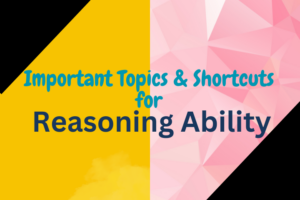
1. STRIDE (noun) छलाँग
Meaning: A long step or stage in making progress.
Synonyms: clump, tramp, stomp, stalk
Antonyms: amble, meander, ramble, stroll, wander
Usage: In two bounding strides the woman was in the street, kneeling over her friend.
2. VEXATIOUS (adjective) कष्टकर
Meaning: Causing or tending to cause annoyance, frustration, or worry.
Synonyms: annoying, vexing, irritating, irksome, displeasing, infuriating, maddening, exasperating
Antonyms: helpful, pleasing, soothing, aiding, assisting
Usage: This vexatious problem was resolved, incompletely, by civil war and secession.
3. STODGY (adjective) मैला-कुचैला
Meaning: Dull and uninspired; lacking originality or excitement
Synonyms: uninteresting, dreary, deadly, unimaginative, uninspired, unexciting, monotonous, humdrum
Antonyms: exciting, entertaining, digestible, creative, breathtaking, enthralling
Usage: Most of my students used informal, asymmetrical balance, as formal balance can seem stodgy and dull.
4. DODDER (verb) डगमगाना
Meaning: tremble or totter, typically because of old age.
Synonyms: totter, toddle, hobble, shuffle, shamble, falter, walk haltingly, walk with difficulty, stumble, stagger, sway, lurch.
Antonyms: steady, fix, hold, placate, stay, still, soothe, remain.
Usage: The old woman doddered from the bed to the table.
5. AGAPE (adjective) भौंचक्का
Meaning: (of a person’s mouth) wide open in surprise or wonder.
Synonyms: expectant, agog, anticipant, anticipatory, breathless, eager, enthusiastic, raring.
Antonyms: apathetic, indifferent, unconcerned, unimpressed, uninterested, unmoved.
Usage: When I first saw the sunset in the Grand Canyon, I could only stand staring with my mouth agape.
6. MOUNTEBANK (noun) कपटी
Meaning: a person who deceives others, especially in order to trick them out of their money; a charlatan.
Synonyms: fraud, hoaxer, humbug, impostor, phony, pretender, quack, ringer, misleader, trickster.
Antonyms: adept, authority, crackerjack, expert, maestro, virtuoso, honest.
Usage: As a mountebank, Krishna is always looking for a way to trick people out of their money.
7. CLOUT (noun) ताकत
Meaning: influence or power, especially in politics or business.
Synonyms: authority, credit, heft, influence, dominion, predominance, reign, sovereignty, supremacy.
Antonyms: helplessness, impotence, impotency, powerlessness, weakness, impuissance, frailty.
Usage: Looking to build a business, the entrepreneur was looking to establish clout in the community.
8. OBFUSCATE (verb) अस्पष्ट करना
Meaning: make obscure, unclear, or unintelligible.
Synonyms: becloud, befog, blur, cloud, confuse, fog, muddy, entangle, disrupt.
Antonyms: simplify, disentangle, unravel, unscramble, untangle, decipher, clarify, illuminate.
Usage: Surprisingly, the efforts of the translator only served to obfuscate an already confusing conversation.
9. PUTATIVE (adjective) कल्पित
Meaning: assumed to exist or to have existed
Synonyms: apparent, assumed, evident, ostensible, presumed, prima facie, reputed, seeming, supposed.
Antonyms: hidden, inapparent, implausible, impossible, improbable, inconceivable, unlikely
actual, authenticated, confirmed, corroborated.
Usage: The film’s putative conclusion led me to believe the hero would return in a sequel.
10. MISCONSTRUE (verb) अशुद्ध अर्थ लगाना
Meaning: interpret (a person’s words or actions) wrongly.
Synonyms: misapprehend, misunderstand, misinterpret, misperceive, misread, miss, mistake.
Antonyms: appreciate, apprehend, comprehend, conceive, fathom, get, grasp, penetrate, perceive, savvy, seize.
Usage: Jason had no idea that her intended compliment had been completely misconstrued by her aunt.




 IBPS Final Result 2025 Coming Out Tomorr...
IBPS Final Result 2025 Coming Out Tomorr...
 Simple Tips to Avoid Common Mistakes In ...
Simple Tips to Avoid Common Mistakes In ...
 Important Topics & Shortcuts for IDB...
Important Topics & Shortcuts for IDB...





